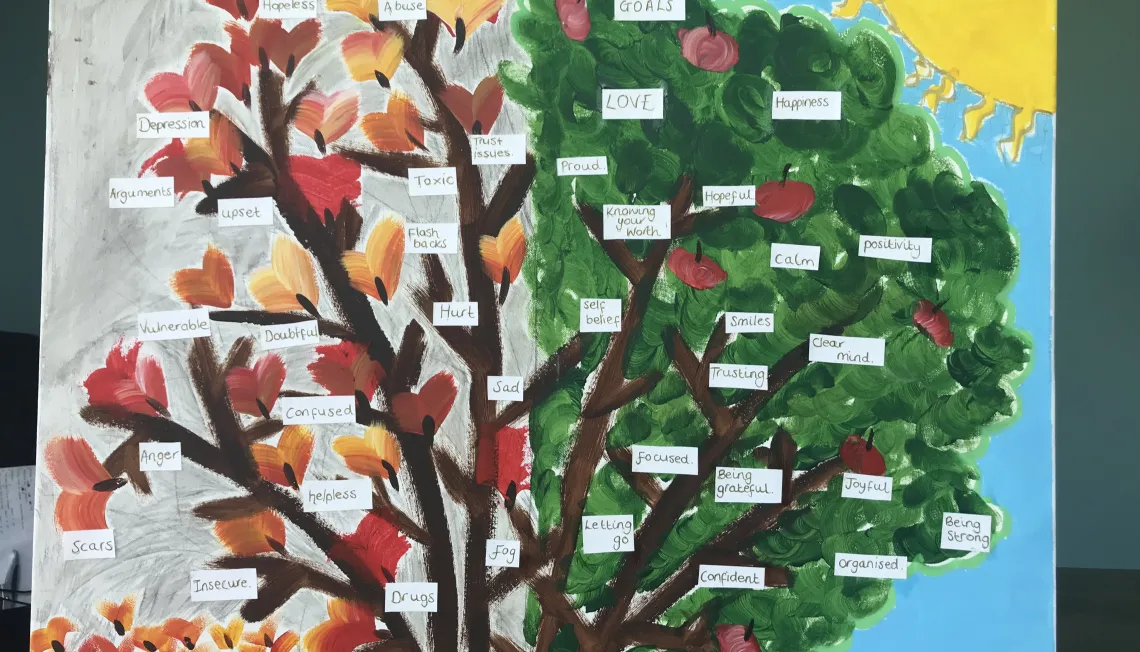We spoke to Dr. Jadwiga Leigh about this innovative parenting programme that she leads in Stockport in the North-West of England. To date, they have worked with 79 families but this number is forever growing.
The Origins of New Beginnings
After conducting comparative studies of family services in Flanders, Belgium, and England, Leigh discovered how Flemish residential centres provide better outcomes for children and parents in comparison to their UK equivalents. Led by Stobbe, a Flemish organisation, these centres work with families holistically by recognising that parents involved with children’s services are more likely to have suffered significant trauma and thus require a therapeutic intensive approach.
Taking inspiration from Stobbe, which means the stump of a tree and signifies a ‘new beginning’ for the family, Leigh piloted New Beginnings (NB) for a year and it has now been successfully operational since 2018. The project is in partnership with Stockport Local Authority and has received funding from Big Lottery, Forever Manchester, Winston Churchill Fellowship, and Stockport Local Authority.
From Tree Stumps to Fresh Growth: “A room full of women who love their children”
NB work with families who have experienced trauma and whose children have open cases with children’s services, such as child protection plans, formal pre-proceedings, and child care orders, due to concerns about neglect and/or abuse. Removing children from their families is not the solution to risks that are premised on class, poverty, or drug and alcohol dependency as the parents are unaware of how such issues have affected their children. Leigh describes how when you enter a parenting class you are faced with “a room full of women who all love their children but are struggling to parent their children” thus, NB is designed to harness this love and provide opportunities for parents to learn from each other.
Not only does NB provide representation to parents in statutory meetings but they help them learn how to articulate why they are in disagreement with their children’s social workers. Leigh explains that supporting parents to advocate for themselves does not indicate that NB is ignoring identified concerns but that when parents feel empowered, they can meaningfully engage in the child protection process. Where previously they might have become angry and walked out of a Child Protection Conference, having the skills to articulate their perspective allows them to stay in the room, listen, and be heard. As a result, parents begin to let down their barriers, and relationships form whereby they feel safe to critically reflect on their parenting.
How does NB’s Trauma-Informed Programme differ from standard parenting programmes?
- NB runs for 24 weeks.
- They work closely with parents and their children by using adult attachment theory and video interactive guidance.
- Parents do not have to leave once they’ve finished the programme and can continue to receive support via the Post Programme Support Project known as the Butterfly Project.
- Parents can train to become peer mentors, which is accredited through a charity in Stockport known as Society Inc., and support new parents who begin the programme.
Evidencing Success
Researchers at the University of Sheffield undertook a mid-point evaluation of the pilot project and found that for all families involved, children’s social care involvement had stepped down or closed by the end of the programme. Such professionals had reported great progress with evidence indicating that parents had an increased understanding of risk and safety, the impact of past abusive relationships, and how parenting practice affects safety as well as other areas of focus.
A further evaluation was carried out by Dr. Mary Baginsky (King’s College London) in 2020 that assessed the peer mentoring process and made various recommendations. In order to strengthen the model, parents are no longer able to be peer mentors if they are still dependent on drugs or alcohol.
If you would like to find out more about New Beginnings Foundation CIO, please visit http://www.newbeginningsfoundationcio.com or contact Jadwiga Leigh at info@newbeginningsgm.com
This case study was written by Albinia Stanley in 2019 and updated by Maysa Clam in 2022
